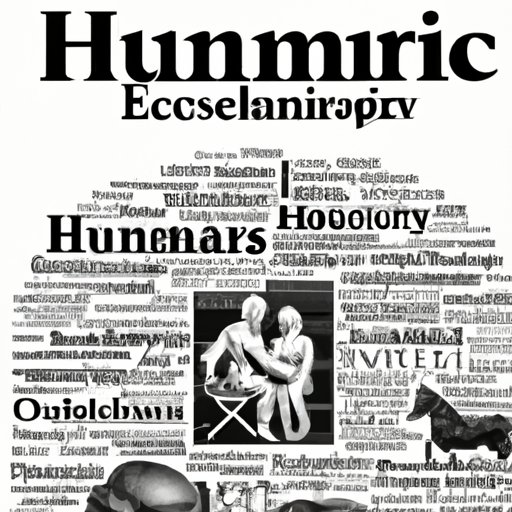Introduction
Humanism is an intellectual movement that emerged in the Renaissance period, which focused on the study of classical texts to create a more humane society. This movement had a profound effect on Renaissance literature, with many authors embracing its ideas and values. In this article, we’ll examine the impact of humanism on Renaissance literature, tracing its spread across Europe and looking at how it shaped the works of some of the most influential authors from this period.
Analyzing the Impact of Humanism on Renaissance Literature
Humanism was a pervasive force in Renaissance literature, influencing the works of many of the period’s leading authors. The Italian poet Francesco Petrarch is often credited with sparking the humanist movement, and his sonnets are seen as a prime example of the humanist ideal. His works emphasize the beauty of nature and the power of individual expression, themes that would be echoed by later authors such as William Shakespeare and Christopher Marlowe.
Humanism also had a major impact on other literary genres. For instance, in drama, humanist authors sought to portray characters with greater psychological depth and realism than had previously been seen. This can be seen in some of Shakespeare’s greatest works, such as Hamlet and Macbeth, in which complex characters are explored in great detail. Likewise, in poetry, writers embraced the idea of conveying personal experience and emotion, as seen in John Donne’s Metaphysical Poems.

Investigating the Spread of Humanism Across Europe and its Influence on Literary Production
Humanism was not confined to Italy, and its influence quickly spread across Europe. In England, for instance, humanist ideals were embraced by many authors, including Sir Thomas More and Edmund Spenser. These writers sought to capture the beauty of nature and the power of the individual, while also exploring philosophical and religious themes. In France, meanwhile, humanist writers such as François Rabelais and Pierre de Ronsard used satire and comedy to explore similar concepts.
By comparing the works of these authors to those written before the emergence of humanism, it’s possible to see how the movement changed the way literature was produced. Whereas earlier works tended to be more formal and structured, humanist authors embraced a more informal and relaxed style. They also sought to capture the beauty of nature and the complexity of the human experience, something that was largely absent from previous works.
It’s also worth noting the legacy of humanism in contemporary literature and culture. Many of the themes embraced by humanists, such as the exploration of individual experience and the celebration of nature, remain central to modern literature. Indeed, many of the works of the Renaissance period continue to be read and studied today, offering readers an insight into the humanist ideals that shaped literature during this period.
Conclusion
In conclusion, humanism was a powerful force in Renaissance literature, influencing the works of many of the period’s leading authors. Its emphasis on individual expression and the exploration of human experience helped shape the works of major authors such as Shakespeare and Donne, while its spread across Europe allowed for the emergence of new genres and styles of literature. The legacy of humanism can still be seen in modern literature and culture, with many of its ideas and themes remaining central to our understanding of the world.
(Note: Is this article not meeting your expectations? Do you have knowledge or insights to share? Unlock new opportunities and expand your reach by joining our authors team. Click Registration to join us and share your expertise with our readers.)
